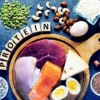Does Eating A High Amount of Animal or Plant Protein Lead to Higher Risk of Chronic Kidney Disease?
Overview
- What did they test? The researchers compiled the results of six studies that included over 140,000 participants to examine the relationship between total protein consumption and protein from plant or animal sources and the risk of developing chronic kidney disease (CKD).
- What did they find? Researchers found that higher consumption of total protein, animal protein, and plant protein were all associated with an 18%, 23%, and 14%, respectively, lower incidence of chronic kidney disease.
- What does it mean for you? There has been some concern about higher protein diets and kidney health. Patients with existing chronic kidney disease can benefit from a protein restricted diet, but there is currently debate about whether or not high protein diets can impact kidney health among healthy individuals.
The findings of this study suggest that higher protein diets, both from animal and plant protein sources, are associated with lower rates of CKD. This study further confirms that high protein diets do not damage kidney function among healthy individuals.
What’s the problem?
Purpose
About 90% of waste from protein metabolism is excreted by the kidneys, and higher protein intakes may result in glomerular hyperfiltration and damage the kidney 1. As a result, dietary guidelines for the prevention of end-stage kidney disease for those with chronic kidney disease recommend limited protein consumption 2. However, it is unclear whether a high protein diet can contribute to kidney disease among healthy populations or whether the source of protein (plant vs. animal) influences the relationship between protein intake and kidney health. The purpose of this study was to synthesize the existing research on protein intake and kidney disease and determine if there is a relationship between total, animal or plant protein intake and kidney disease.
Hypothesis
Given the inconsistencies in the current body of evidence, the researchers were unsure if they would uncover a relationship between protein intake and kidney disease. They noted that previous research did suggest that plant protein would have a protective effect.







